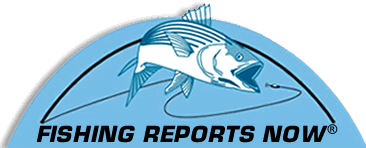Allowing State Sea Bass Regs in Fed Waters
And Slot Size Limits for Fluke
FOR IMMEDIATE RELEASE, DECEMBER 13, 2018
PRESS CONTACT, TINA BERGER, 703.842.0740
ASMFC Approves Addenda XXXI and XXXII to the Summer Flounder, Scup and Black Sea Bass Fishery Management Plan
Annapolis, MD – The Atlantic States Marine Fisheries Commission’s Summer Flounder, Scup, and Black Sea Bass Management Board (Board), at its joint meeting with the Mid-Atlantic Fishery Management Council (Council), approved Addenda XXXI and XXXII to the Summer Flounder, Scup and Black Sea Bass Fishery Management Plan (FMP).
Addendum XXXI
Addendum XXXI, coupled with the Council’s complementary Framework Document, adds to the suite of tools available for managing summer flounder, scup and black sea bass, with particular focus on enhancing the compatibility of state and federal regulations.
First, the joint action modifies the Council and Commission FMPs to allow the use of conservation equivalency for black sea bass recreational management, beginning in 2020. Conservation equivalency allows recreational management measures in federal waters measures to be waived, and instead requires recreational anglers to abide by the measures of the state in which they land their catch. As is done in summer flounder recreational management, the Board and Council will annually decide whether to enact conservation equivalency.
Second, the Commission recommended NOAA Fisheries implement transit provisions in Block Island Sound, allowing non-federally permitted recreational and commercial vessels to transit federal waters while in possession of summer flounder, scup, and black sea bass legally harvested from state waters.
Lastly, the Council’s Framework allows for the use of maximum sizes in addition to minimum sizes, commonly referred to as slot limits, to control catch in the summer flounder and black sea bass recreational fisheries. The Commission’s FMP already allows for use of this approach, thereby allowing both management bodies to use this measure in the future.
Addendum XXXII
Addendum XXXII establishes a new process for developing recreational management measures for summer flounder and black sea bass. These measures will be set on an annual basis through a specifications process, rather than addenda. The Board will approve measures in early spring each year, based on technical committee analysis of stock status, resource availability, and harvest estimates. Public input on specifications will be gathered by states through their individual public comment processes.
By removing the need to develop annual addenda to implement recreational measures, the specifications process will provide the Board more flexibility in adjusting measures, if necessary, to constrain harvest to the annual coastwide recreational harvest limit (RHL). Further, the process will enable the Board to consider a host of factors, including: regional equity; regulatory stability; species abundance and distribution; and late-breaking recreational harvest estimates. To further aid in setting specifications, the Addendum establishes standards and guiding principles intended to structure the development of recreational measures on a regional basis.
Addenda XXXI and XXXII will be available on the Commission website, www.asmfc.org, on each species webpage by the end of December. For more information on summer flounder and scup, please contact Kirby Rootes-Murdy, Senior Fishery Management Plan Coordinator, at krootes-murdy@asmfc.org, and for information on black sea bass, contact Caitlin Starks, Fishery Management Plan Coordinator, at cstarks@asmfc.org, or 703.842.0740.
###





